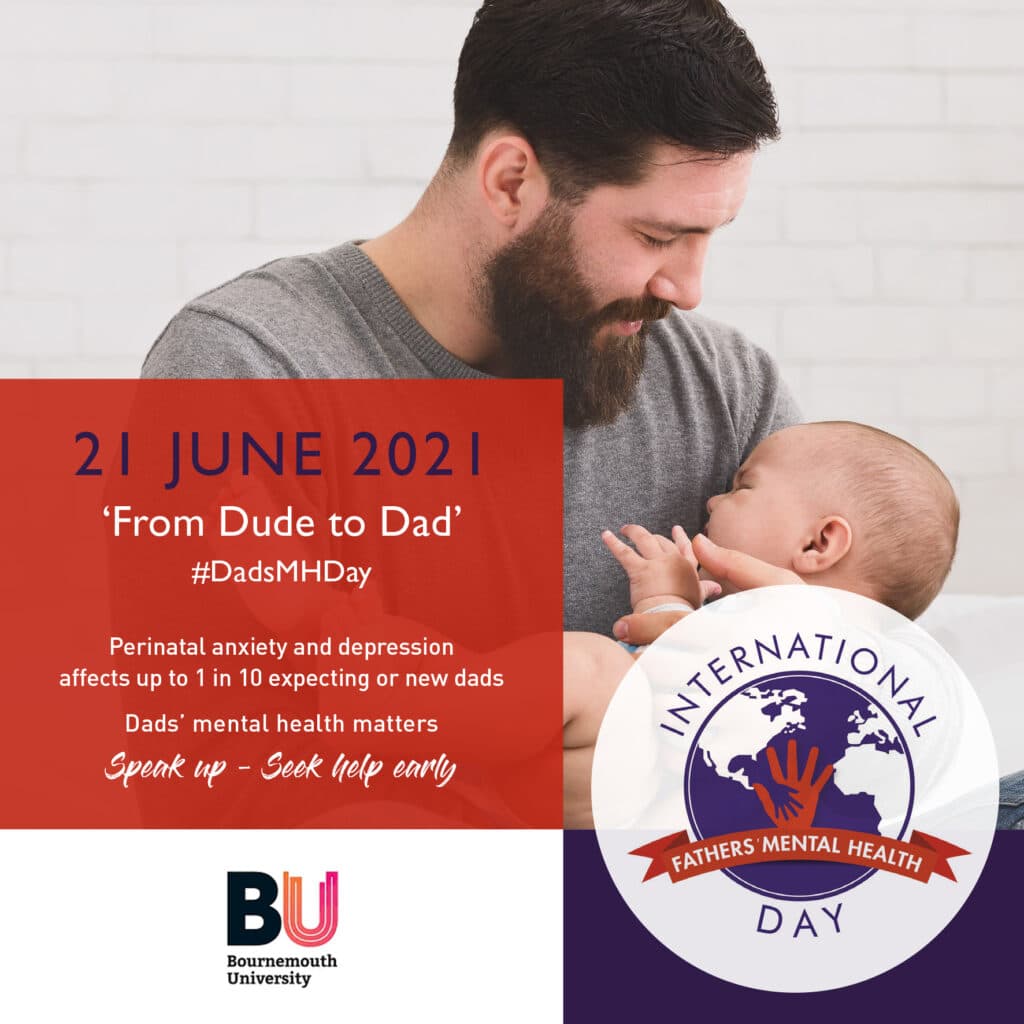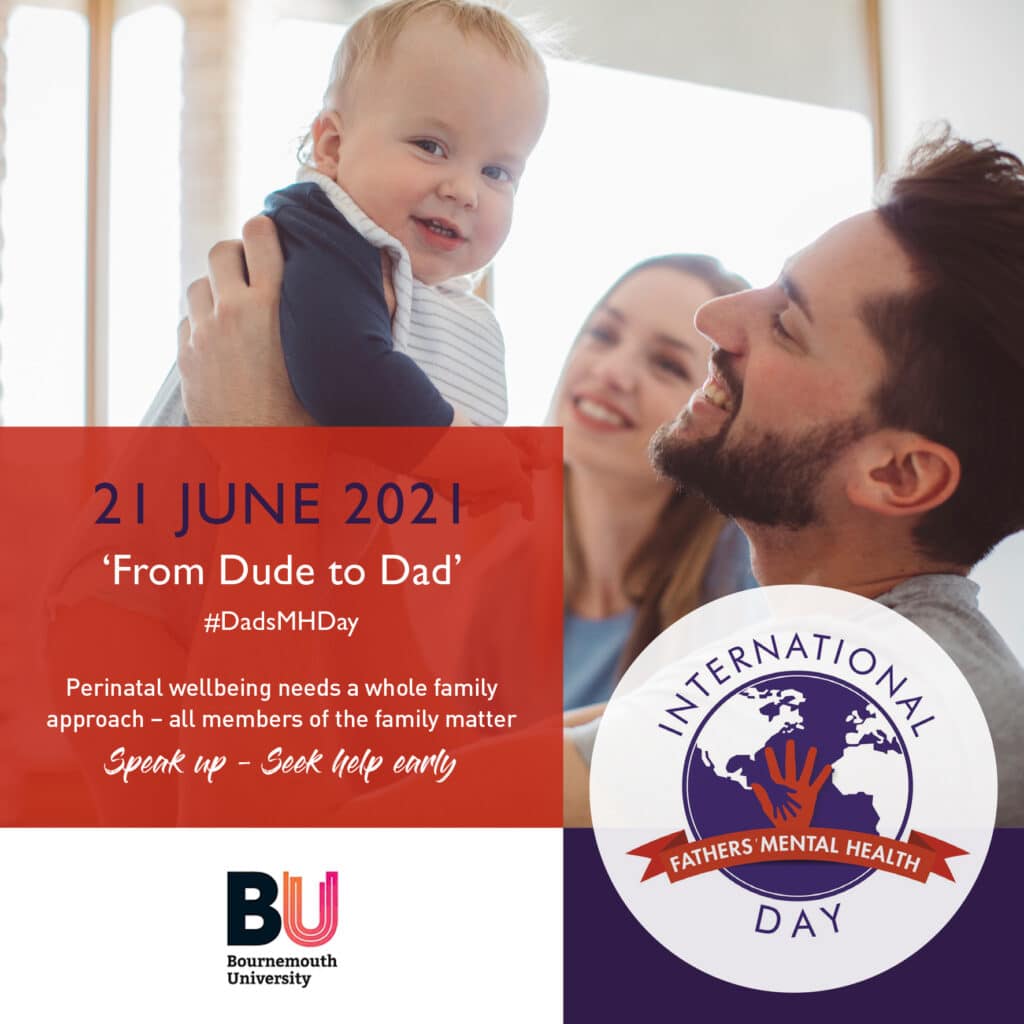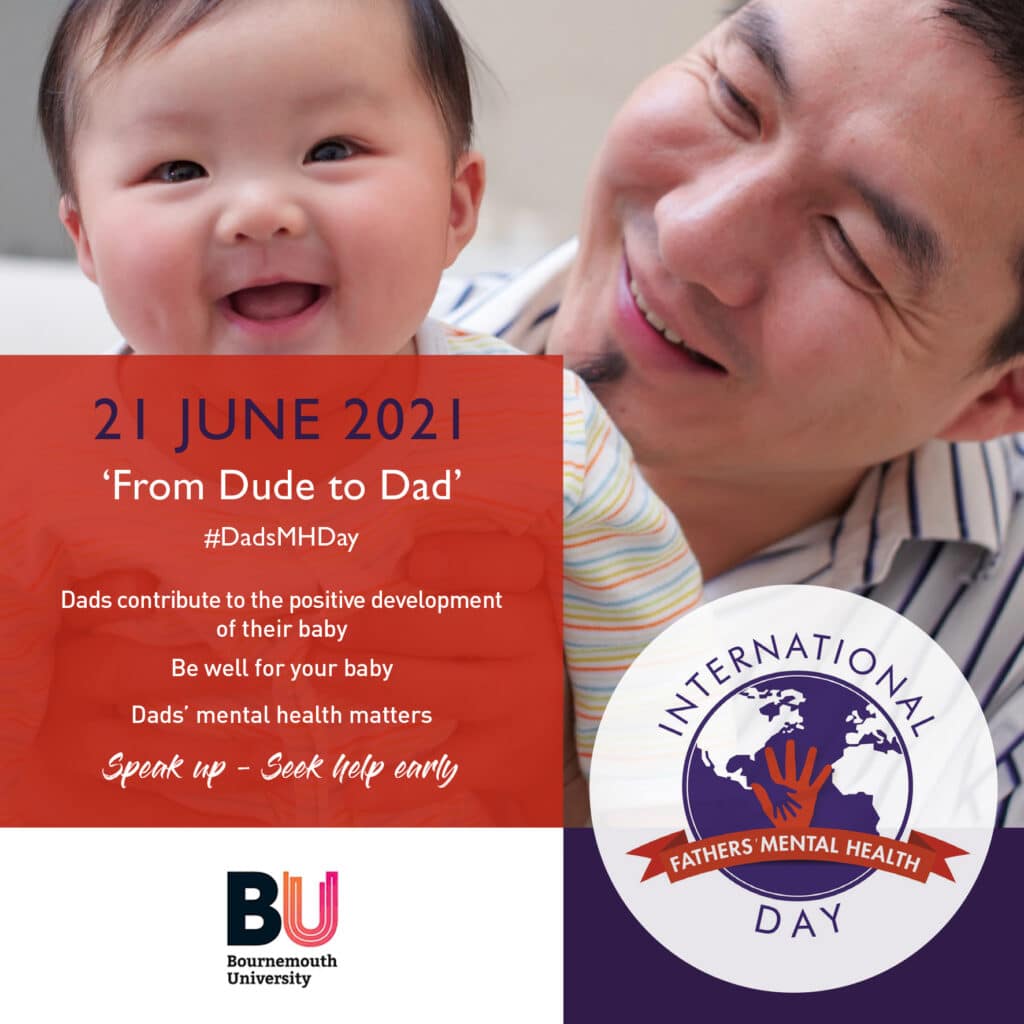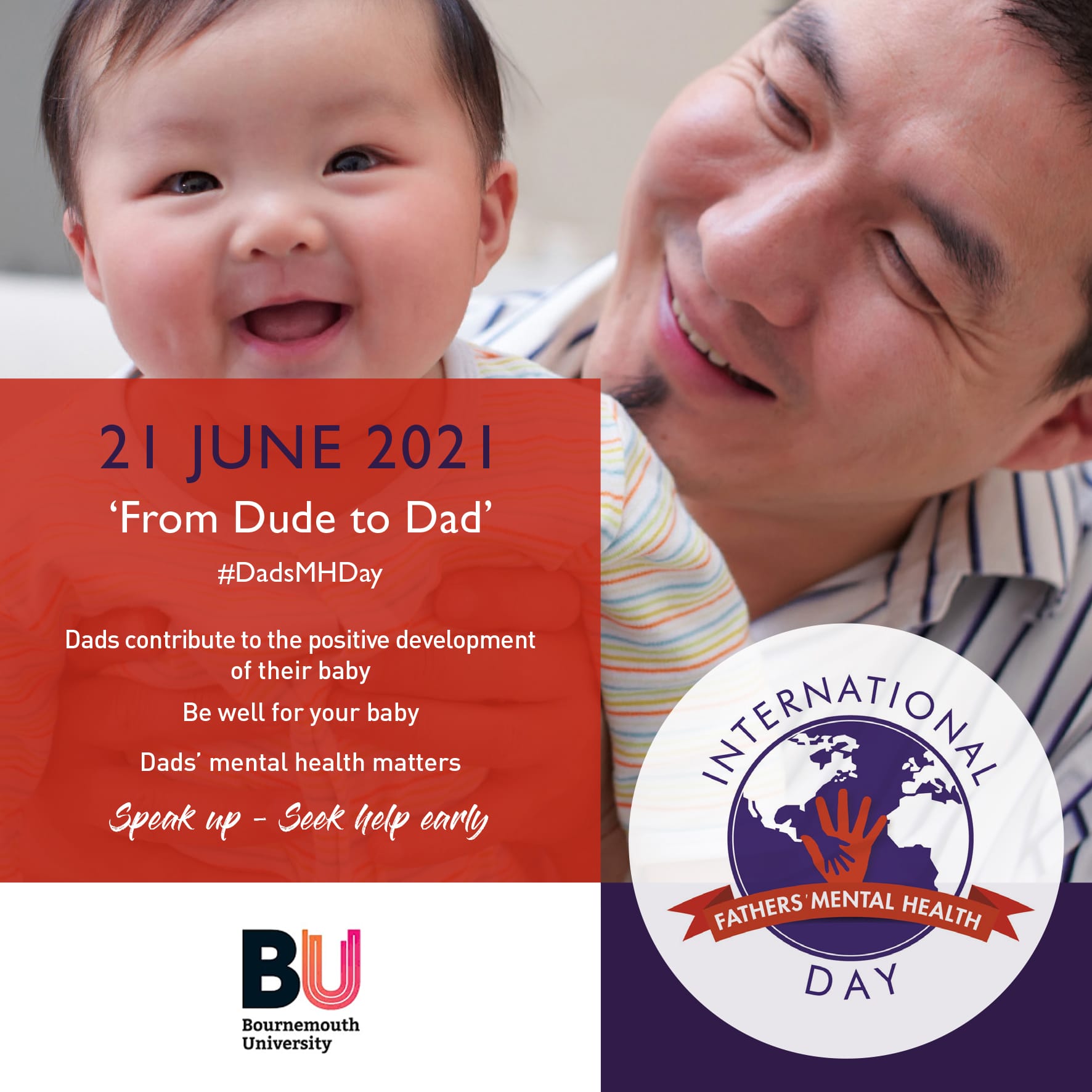
June 21st, the day after Father’s Day, marks the 6th annual International Father’s Mental Health Day (IFMHD). It was founded in June 2016 by Mark Williams (UK) and Dr Daniel Singley (USA). Since then, it has grown into a global event, raising awareness about fathers’ mental health. IFMHD nowincludes contributions from USA, Zimbabwe, Australia and Ireland. In addition to Mark Williams, the UK team comprisesDr Andrew Mayers (Principal Academic at Bournemouth University), who is a perinatal mental health campaigner and educator; and Dr Jane Hanley, a highly-regarded health visitor, honorary lecturer at Swansea University, and a consultant trainer in perinatal mental health.

Throughout the day, there will be a series of blogs, stories, press releases and resources shared by charities, support groups, health professionals, and families who have experienced the impact of poor mental health in fathers. The events will be shared across social media platforms (including Twitter, Instagram, and Facebook) in addition to radio broadcasts. One of the highlights this year includes aninternational webinar at which a new book, focusing on fathers’ mental health, will be officially launched. Witten by Dr Paul Hodkinson and Dr Ranjana Das at University of Surrey, the book focuses on how digital communication may play a role in supporting fathers. Andrew Mayers will be one of the speakers at that event. Free places for the event can be booked at http://bit.ly/IFMHDBook.

While the aim is to raise awareness, it is also important that these events contribute to real change. In recent years, evidence-based campaigning has influenced policy changes within NHS England for identifying fathers at risk. Partly influenced by UK campaigns for fathers’ mental health, in January 2019 NHS England announced that, for the very first time, some fathers would now be screened for their mental health. Since then, some developments have begun to emerge. However, much of that progress was suddenly postponed when the awful impact of Covid-19 started emerging in early 2020. In May 2021, NHS England finally released a report setting out how fathers, and all partners, should be support for perinatal mental health. Both Andrew and Mark contributed evidence to that report as members of the expert reference group. You can read that report at https://bit.ly/NHS_Partners.

For IFMHD 2021, the UK team reflect once again on the impact of Covid-19 on perinatal services. Many partners have experienced negative experiences throughout the pandemic. During lockdowns, fathers have been routinely excluded from antenatal appointments (including scans and other vital meetings with maternity staff) and the birth itself. In many cases, mothers were left to process distressing information, or had to make difficult decisions, without their partner present. Fathers were often left outside the hospital not able to be part of that experience, or able to support his partner.
Andrew Mayers said “Recent campaigning and evidence-based research has influenced encouraging changes in support fathers’ mental health. However, there is a lot more to do. For one thing, those changes largely apply to England. We need more progress in Wales, Scotland and Northern Ireland. We also need the Government to extend support to all partners, not just fathers whose partner is currently under NHS specialist care.”

Mark Williams said “We need to think of the whole family approach when it comes to perinatal mental health support and that must include fathers, which has far better outcomes for this partner and the development of the child.”
You can read more about this work on Andy Mayers’ web page for fathers’ mental health https://andrewmayers.uk/fathers-mental-health
Mark’s website can be found at http://www.reachingoutpmh.co.uk/
More information can be found on IFMHD webpage: https://www.postpartum.net/news-and-blog/ifmhd/
Social media
Follow Andy Mayers on: Twitter @DrAndyMayers); Instagram @drandymayers; Facebook Dr Andy Mayers
Follow Mark Williams on: Twitter @MarkWilliamsFMH); IG @fathers_mentalhealth; FB MarkWilliamsFMH1
IFMHD social media details: Twitter @dadsMHday; IG @dadsMHday; Facebook
Hashtags: #dadsMHday #howareyoudad
PLEASE SUPPORT US FOR JUST £2 A MONTH











